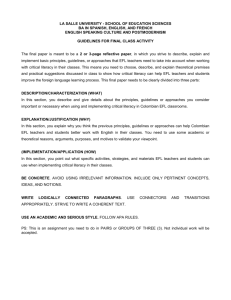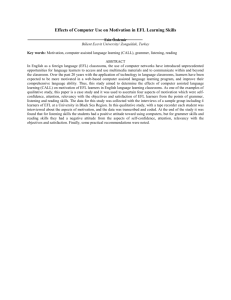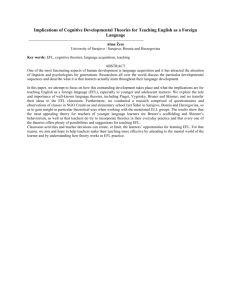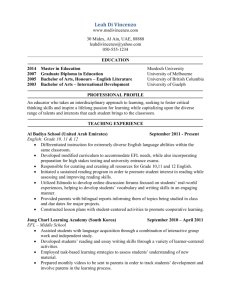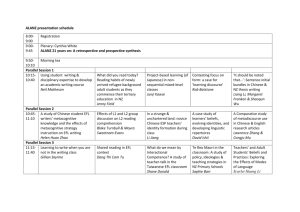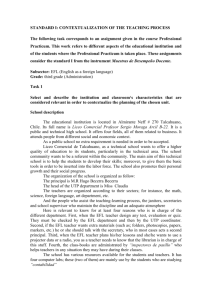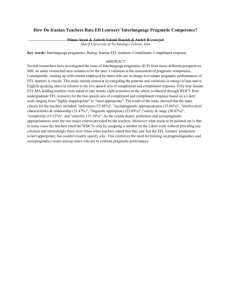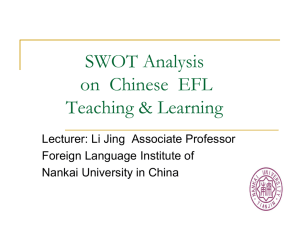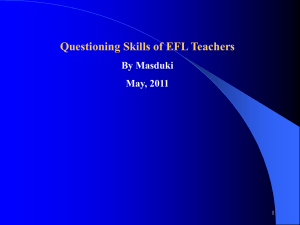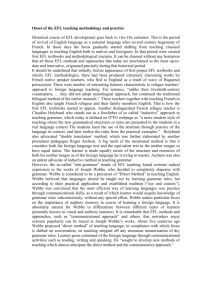Investigating the effect of Vocabulary Learning
advertisement
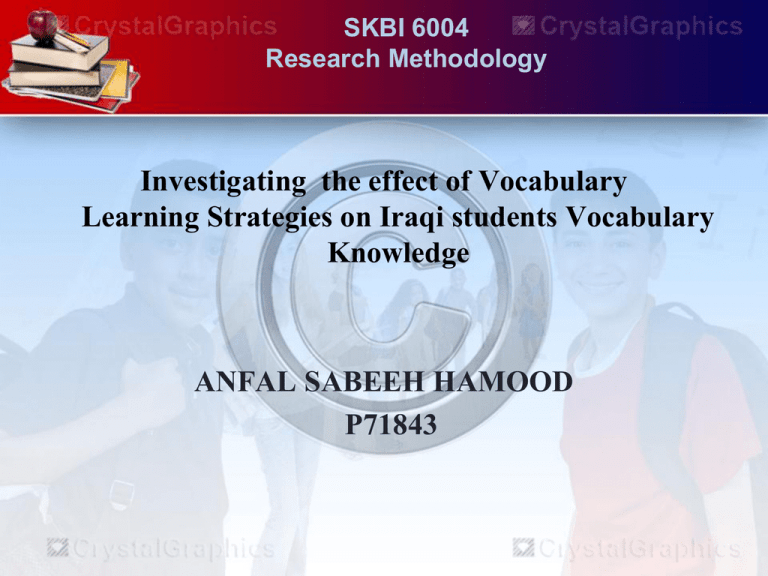
SKBI 6004 Research Methodology Investigating the effect of Vocabulary Learning Strategies on Iraqi students Vocabulary Knowledge ANFAL SABEEH HAMOOD P71843 Introduction Learning English language as a foreign or second language needs lexical knowledge which plays a vital role to learn this language effectively. Vocabulary acquisition makes second language learners (L2) adept in accurate meaning, spelling and derivations (Ramírez, Chen, & Pasquarella, 2013). Problem Statement Vocabulary knowledge dependents on vocabulary learning strategies where most learners identify the acquisition of vocabulary as their greatest source of problems ( Abdo and Breen,2010) Teaching vocabulary learning strategies is given least attention in EFL classrooms (Abdo & Breen, 2010). This study focuses in identifying the vocabulary learning strategies of EFL Iraqi students to enable English language instructors gaining a better understanding of it Research Aims This research will achieve the following objectives: Determine the vocabulary level of EFL Iraqi students. Determine the relationships between different VLSs and vocabulary level of EFL Iraqi students. RESEARCH QUESTIONS • Q1; What is the vocabulary level of EFL Iraqi students? • Q2; What is the relationship of current learning strategies and vocabulary level of EFL Iraqi students? References Abdo, I. B., & Breen, G.-M. (2010). Teaching EFL to Jordanian students: New strategies for enhancing English acquisition in a distinct Middle Eastern student population. Creative Education, 1, 39. Abdulkareem, M. N. (2013). An Investigation Study of Academic Writing Problems Faced by Arab Postgraduate Students at Universiti Teknologi Malaysia (UTM). Theory & Practice in Language Studies, 3(9). Francisco, A. E. (2013). My Teaching and Administrative Experience in the Middle East: A Cultural Perspective. MA TESOL Collection. from http://digitalcollections.sit.edu/ipp_collection/697 References Gu, Y., & Johnson, R. K. (1996). Vocabulary learning strategies and language learning outcomes. Language Learning, 46(4), 643-679. Ma, Q. (2013). Matching vocabulary learning process with learning outcome in L2 academic writing: An exploratory case study. Linguistics and Education, 24(2), 237-246. Ramírez, G., Chen, X., & Pasquarella, A. (2013). Cross-linguistic transfer of morphological awareness in Spanish-speaking English language learners: The facilitating effect of cognate knowledge. Topics in Language Disorders, 33(1), 73-92. Wu, L.-F. (2014). Technical College Students’ Perceptions of English for Specific Purposes Vocabulary Learning and Teaching. International Journal of English Language Education, 2(1), pp. 176-186.
